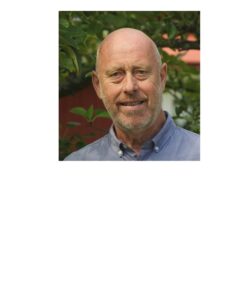Saturday, September 27, 2025/12 Noon-Eastern/Online
Understanding the Embodiment of Narrative in the Therapeutic Exchange
The Embodiment Series of 2025-2026
THE EMBODIMENT SERIES of 2025-2026
First Embodiment event of the New Season
Understanding the Embodiment of Narrative in the Therapeutic Exchange
Jack Foehl, PhD, Mark Freeman, PhD, Daniel Goldin, MFT, PsyD and Lynn Preston, MA, MS, LP
with
Moderators Doris Brothers, PhD and Jon Sletvold, PsyD
SATURDAY, SEPTEMBER 27th
Online from 12 Noon – 2:00PM/Eastern
This series is presented in collaboration with The Wilhelm Reich Center for the Study of Embodiment
ABOUT THIS EVENT
Can the narratives that organize psychoanalytic exchanges be conducted without words? The answer according to the presenters in this conversation is a resounding “yes!” They offer different perspectives on how both verbal and nonverbal communication in psychoanalysis takes narrative form.
Together they demonstrate the crucial importance of understanding the embodiment of narratives in therapeutic relationships.
COSTS
Professionals $50
Candidates and Students $30
CE CREDIT INFORMATON
2 CONTINUING EDUCATION CREDITS ARE AVAILABLE. Instructions about how to obtain available CEs are sent out to registrants in the entry link email, prior to the event. If you miss that letter (for late sign-ups), please request CE instructions after the event.
IMPORTANT INFORMATION ABOUT ENTRY LINKS FOR ONLINE EVENTS
NOTE TO ALL REGISTRANTS FOR ONLINE EVENTS: Entry links for Zoom events are sent in two ways: (1) the entry link is sent on the Registration payment receipt delivered to your email INBOX; and (2) links are sent out to Registrants 1-3 days prior to the scheduled event date. If you register just prior to the event’s start, you will only receive the link on the payment receipt.
For those who do not see a link letter in their Inbox, check Trash and Spam files. If you do not find your link-letter by the business day prior to the event, you may email: e.rodman@wawhite.org
We will do whatever we can to get your link to you, however the Institute is not responsible for your email provider’s security settings. There are no refunds for paid events if a link was sent to you.
For general CE Credit information, click here
THE SPEAKERS
Jack Foehl, PhD
is Past President of the Boston Psychoanalytic Society & Institute, where he is Training and Supervising Analyst and is Supervisor and faculty member at the Massachusetts Institute for Psychoanalysis. He is Clinical Associate Professor at the NYU Postdoctoral Program in Psychotherapy and Psychoanalysis and is Lecturer at Harvard Medical School. Dr. Foehl is Joint Editor-in-Chief of Psychoanalytic Dialogues and is a past editorial board member of the International Journal of Psychoanalysis. His recent publications include, Playing with Winnicott: Squiggling Through Therapeutic Consultations and The Slap: Playing with Reality in Discussing Trauma in 2022, and Lived Depth: A Phenomenology of Psychoanalytic Process and Identity in 2020. He integrates Merleau-Ponty’s work on the lived body into a framework for teaching and experiencing psychoanalytic process.
Mark Freeman, PhD
Professor Emeritus of Psychology at the College of the Holy Cross, is currently Research Professor in the Lynch School of Education and Human Development as well as Senior Fellow at the Center for Psychological Humanities and Ethics at Boston College. Author of numerous works, including Rewriting the Self: History, Memory, Narrative; Hindsight: The Promise and Peril of Looking Backward; The Priority of the Other: Thinking and Living Beyond the Self; Do I Look at You with Love? Reimagining the Story of Dementia, and most recently, Toward the Psychological Humanities: A Modest Manifesto for the Future of Psychology. He also serves as Editor for the Oxford University Press series, Explorations in Narrative Psychology.
Dr. Freeman says about his presentation for this event: For many of us, recent history has brought in tow a barrage of disturbing, mystifying, and at times positively horrifying events and experiences. All of these are “metabolized” in some way. But how? More specifically, how might we begin to tell the story of the ways in which the state of the world has entered into our own embodied being? In addressing these questions, I will discuss the movement from past to present as well as from present to past. How can we begin to understand how a given event–the morning after the election of Donald Trump, say, is carried into the future? And how can we begin to understand how a given experience in the present–for instance a bout of despairing malaise–may have originated? In short: How does one determine what sorts of stories are to be told, and what sorts of clues can the body provide?
Daniel Goldin, MFT, PsyD
serves as editor of Psychoanalytic Inquiry. He has written numerous articles for Psychoanalytic Dialogues, Psychoanalysis: Self and context and Psychoanalytic Inquiry. His book Toward a Pragmatic Psychoanalysis: Bringing Nature, Nurture and Culture Together again will be published by Routledge this year. He and Daniel Posner create and host the popular podcast “The Conversation,” which confronts important issues of the day in a psychoanalytic vein.
For Dr. Goldin’s presentation, he says: I will be describing two kinds of empathy, one which is immediate and obviously embodied, which I call perception empathy, and another which expands from the first to wrap an intimate story around a patient’s situation, which I am calling extended empathy. Empathy so conceived provides a long tether. The stories we put together with our patients sometimes reach into infancy, sometimes into contemporary culture and politics, but they inevitably return to the body, to the feelings that started the excursion. Stories describe how we feel and change how we feel at the same time. It will be a pleasure to think together about this ordinary (but also extraordinary) aspect of our work.
Lynn Preston, MA, MS, LP
is a New York City-based relational psychoanalyst and supervisor. She is the founding director of the Community Empowerment Project and Help for Helpers, an online covid-inspired international support group for therapists. She has written on the subjects of implicit experience and the use of the analyst’s subjectivity. She has a special interest in applying self-psychological principles to groups and communities.
ABOUT THE MODERATORS/CO-DIRECTORS OF THE WILHELM REICH CENTER FOR THE STUDY OF EMBODIMENT
Doris Brothers, PhD, is a co-founder and faculty member of the Training and Research in Intersubjective Self Psychology Foundation (TRISP). She was co-editor with Roger Frie of Psychoanalysis, Self and Context from 2015-2019 and is an associate editor of Psychoanalytic Inquiry. She serves on the council of the International Association of Psychoanalytic Self Psychology (IAPSP). Doris has published many journal articles and book chapters as well as four books. Her latest book, written with Jon Sletvold is entitled A New Vision of Psychoanalytic Theory, Practice and Supervision: TALKING BODIES. Her earlier books are: Toward a Psychology of Uncertainty: Trauma-Centered Psychoanalysis (2008), Falling Backwards: An Exploration of Trust and Self-Experience (1995), and with Richard Ulman, The Shattered Self: A Psychoanalytic Study of Trauma (1988). She has presented her work internationally and leads supervision/study groups with Jon Sletvold. She sees patients in private practice in New York and Oslo.
Psychoanalytic Self Psychology (IAPSP). Doris has published many journal articles and book chapters as well as four books. Her latest book, written with Jon Sletvold is entitled A New Vision of Psychoanalytic Theory, Practice and Supervision: TALKING BODIES. Her earlier books are: Toward a Psychology of Uncertainty: Trauma-Centered Psychoanalysis (2008), Falling Backwards: An Exploration of Trust and Self-Experience (1995), and with Richard Ulman, The Shattered Self: A Psychoanalytic Study of Trauma (1988). She has presented her work internationally and leads supervision/study groups with Jon Sletvold. She sees patients in private practice in New York and Oslo.

Jon Sletvold, PsyD, is founding board director and faculty member of the Norwegian Character Analytic Institute.He has written articles and book chapters on embodiment in psychoanalytic theory, practice, and training. He is the editor of four books and the author of The Embodied Analyst: From Freud and Reich to Relationality, which won the Gradiva Award in 2015. In 2019 he wrote From Muscular Armor to Bodies in Dialogue with Per Harbitz. His latest book, written with Doris Brothers is A New Vision of Psychoanalytic Theory, Practice and Supervision: TALKING BODIES. Dr. Sletvold has presented his work internationally and co-leads online supervision/study groups on embodiment in Europe, North America and China with Doris Brothers. He practices in Oslo and New York.
ABOUT THE WILHELM REICH CENTER FOR THE STUDY OF EMBODIMENT
Inspired by the pioneering work of Wilhelm Reich and encouraged by the recent surge of interest in embodiment among clinicians, co-Directors Drs. Doris Brothers and Jon Sletvold have founded the Center. With it, they are introducing an online forum for dialogues about the ways in which embodiment affects the theory and practice of psychoanalysis and psychotherapy.
A wide range of approaches to embodiment have emerged in the last two decades that have led them to believe that a “turn toward embodiment” is underway. In the interest of furthering this turn they are offering a format that differs from the usual at psychoanalytic meetings. Rather than featuring a paper presenting a specific theorist or clinician followed by discussions, they intend that each event will center around a specific topic. Speakers from around the world, each of whom employs a different perspective on embodiment, will be invited to participate in a roundtable conversation of the topic. Afterward, online participants will be encouraged to join the conversation.
Learn more about The Wilhelm Reich Center for the Study of Embodiment
LEARNING OBJECTIVES FOR THIS EVENT:
1. By the end of this presentation attendees will be able to evaluate the
advantages of using body-based language rather than concept-based
language for psychoanalysis.
2. By the end of this presentation attendees will be able to discuss
communication that takes place in the silences between the words.
William Alanson White Institute of Psychiatry, Psychoanalysis & Psychology 20 West 74th Street, New York, NY 10023 | (212) 873-0725